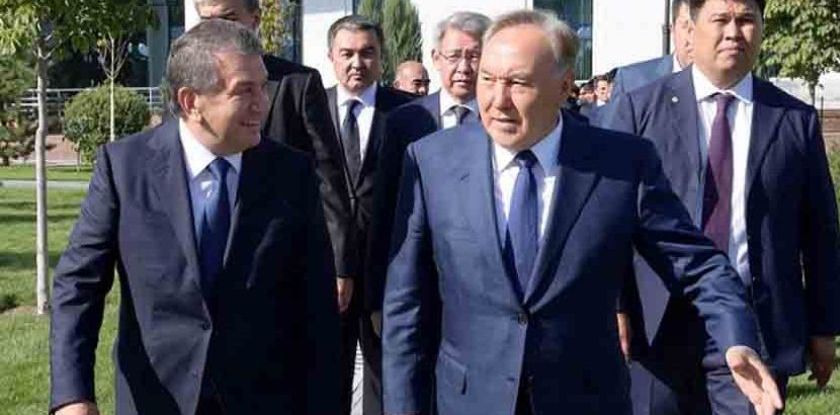Experts on the Eurasian affairs are now discussing the upcoming visit of the new Uzbek president to Astana. One question in particular has aroused everyone’s curiosity. Why did Shavkat Mirziyoyev make his first official visit to Turkmenistan, why is he now coming to Kazakhstan and why, only afterwards, will he go to Russia?
Experts offer different explanations for this phenomenon. Some of them are quite reasonable such as the fact that Uzbekistan is establishing tighter economic and political connections with its regional neighbors. Others seem a little exotic, for example, an idea that, since Nazarbayev is older and well respected around the world, Mirziyoyev wants to form close relationships with him.
Well, let us offer yet another one here. Mirziyoyev’s first actions suggest that the new Uzbek leader wants to pursue a well-balanced policy oriented towards practical results. Therefore, he must keep in mind the current day realia. And, choosing Ashkhabad and Astana as the places of his first and second official visits, he confirms it. He is taking into consideration the current realia.
Perhaps they would like to see Mirziyoyev in Washington and in Brussels as well. However, it would take a long time to coordinate such a visit and, undoubtedly, demand certain concessions on the part of the Uzbek president who, at the moment, is not ready to grant them. At least not just for a thank you and in advance.
The trips to Beijing and Moscow can be coordinated more promptly but they cannot be carried out simultaneously. The respect and attention showed to one of these countries, however, de facto would mean showing a certain political and economic preference which, today, is not what Tashkent desires.
Who is left? Ashkhabad and Astana. As for Tadzhikistan and Kyrgyzstan, there are just too many problems, besides, these countries are not the key players in the region.
The fact that Shavkat Mirziyoyev made his first official visit to Turkmenistan is easy to explain. It was kind of a gesture towards Astana and Nursultan Nazarbayev. It was as if Mirziyoyev wanted to say, “We respect you and wish to be friends but really… not so much”. This is an important signal because Uzbekistan and Kazakhstan have not been the best of friends during the entire post-Soviet era.
By the way, it seems quite significant that, during his last Central Asian tour, Russian President Vladimir Putin had visited only three countries in the region, Kazakhstan, Tadzhikistan, and Kyrgyzstan. There are many reasons for Putin to do so. Among them, there are such factors as the CSTO and EEU memberships, the economic cooperation, the Southern borders security, etc. Still, to Russia, Turkmenistan and Uzbekistan are no less important. Putin, however, did not visit them.
With Ashkhabad, the situation is clear. Turkmenistan has been playing the part of non-participation for ages. As for Tashkent, with Mirziyoyev’s accession to power, it probably wants to strengthen the economic ties with Russia and use Russia as a guarantor of its security.
One factor is perhaps at play here, the one that anyone hardly notices nowadays. Namely, it is the Asiatic mentality. Vladimir Putin could not visit Uzbekistan first because, to do so, would be “beneath his rank” so to speak. In his turn, President Mirziyoyev probably wanted to have Putin as his guest but, to do so, he would have to visit Moscow first, in other words, to show his respect and veneration.
Of course, at some point, Mirziyoyev will go to Moscow because Russia is now playing the leading role in Central Asia and it will be maintaining this position both in the open political and military conflicts with the West and the non-public political and economic struggle with China. However, Mirziyoyev’s visit to Moscow will happen later so it will not attract much attention.
So, we do not exclude a possibility that Vladimir Putin’s visit to Kazakhstan, Tadzhikistan, and Kyrgyzstan, apart from making sure they were all on the same page and resolving some practical issues, was made for the purpose of clarifying their position on Uzbekistan, its new president, and his policies aimed (or not) for establishing closer connections in the region.




